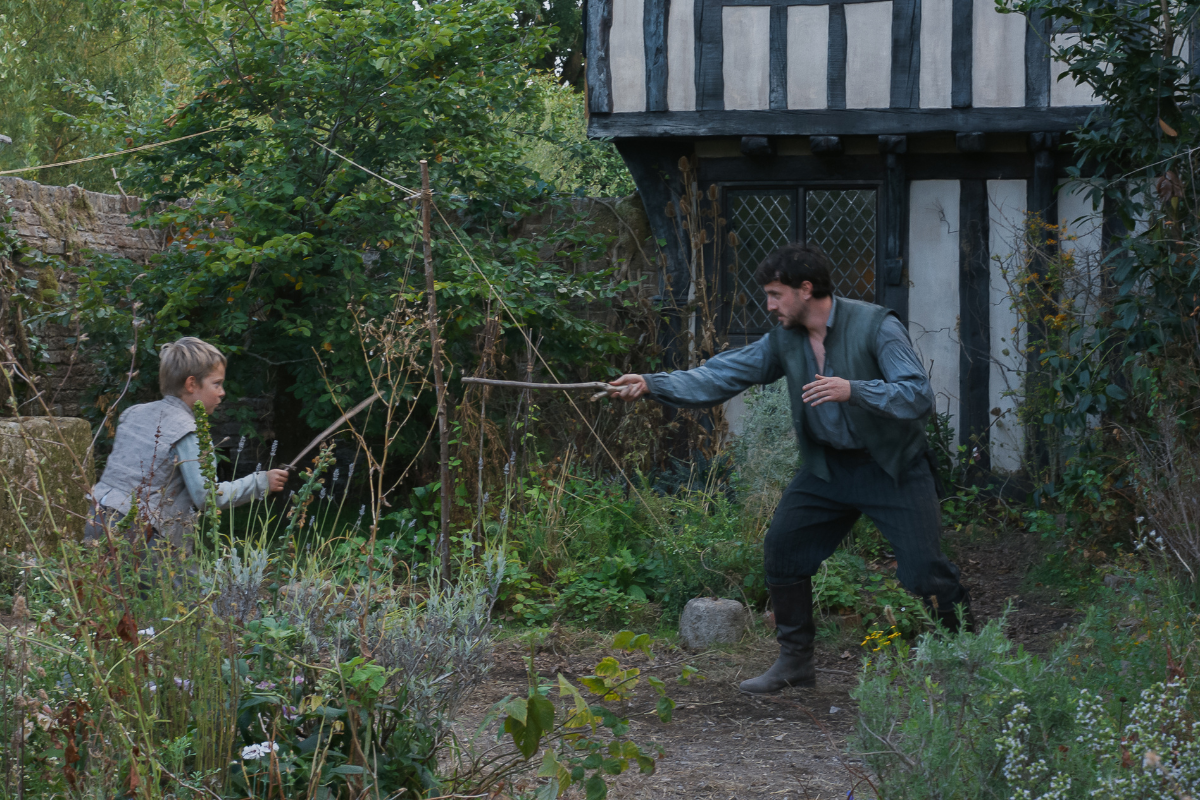PRODUCER’S POV: Mind Map New Ideas For Higher Concept Scripts
Film and Television Writer/Director Heather Hale shares her Producer’s POV (Point of View) on mind mapping and brainstorming new ideas for higher concept screenplays.
We all know that great writing comes from great rewriting. And that second acts are where the real writers live. All that’s true. So very true. But it’s also true that we can all be guilty of nursing a labor of love script to death. At some point, you just have to let go and move on.
It doesn’t matter how brilliantly you execute a marginal idea. If you don’t begin with a concept that intrigues or excites your pitch listeners, script readers or trailer viewers, today's market is simply too insanely over-saturated with competition for a weak project to get noticed above the din.
Start A New Script
Don’t begrudge all those hours you invested on "that" script (and we all have one!). Every hour or page you write empowers you to write better, faster, smarter. KEEP WRITING. Put in the “ten thousand hours of practice” that Malcolm Gladwell, in his third great book, Outliers, identified as “the magic number of greatness.”
One of the best ways I know to access the genius of your mind, the richness of your memories, sensory life experiences and unique expertise is to mind map.
Capturing the chaos of your creativity via a visual representation does a great many things. One: it stops time. It allows you to remember (or barf out) the never-ending slew of stream of consciousness fragments that course under your imaginative skin. Two: it gives you a chance to breathe. It holds all these fleeting gems in a malleable state allowing you to sculpt and manipulate them. And three: it allows you to cherry pick and create a collision of concepts, to play with the building blocks of your unique, personal take on life contrasted with the universal and timeless gems to achieve that elusive but precious “familiar but new” mash-up.
Remember Mad Libs from when we were kids? You'd replace the nouns, verbs and adjectives and adverbs? I had an English teacher once who made us play Mad Libs with arguably one of the longest, most sprawling sentences in English literature (from William Faulkner's brilliant short story, A Rose for Emily) - an exercise I (clearly) never forgot. Play these word games with loglines from your favorite films or genre comps. Play concentration with magazine clippings of characters, worlds, settings, vocations. Themeplay a vision board collage. Select input from your life that inspires or intrigues you.
What is your character’s absolute worst fear? How could that coming true be the best thing that ever happened to her? Opposites attract – but they also repel. What’s the Yin and Yang of why your Protagonist must dance with this specific Antagonist? What do they have to learn from one another? What do we have to learn from vicariously parrying with them? What situation would the absolute worst (or best?) for your TV ensemble that promises to deliver drama or comedy week after week? What epic image system or minute actors' business best brings your theme to life?
Enlarge, study and even print out the above mind map as a great starting place. Journal. Take an Artist’s Date. Refill your inner well. Work your ideas backwards and forwards. Doodle. Walk. Sit in silence and just think. Braid and repeat.
Every hour of brainstorming can save 5 hours of writing
Imagine what five hours of brainstorming would save in writing down rabbit holes. Or a week. Play with the the circulatory system of your inner psyche. Mine your fears, dreams and themes. The brilliant William Martell, a treasured member of the Script Magazine blogging tribe, wrote a great blog about four years ago on High Concept Generation Script Secrets and offered 5 Tips to Turn Your Script Into a High Concept Idea that are both worth checking out. I, myself, teach classes for The Writers Store's Screenwriters University on Creating High Concept Ideas (and I try to do the homework anew, too, each class to keep my own writing chops honed and current).
We’ve all heard a million times that “ideas are a dime a dozen.” I know where that comes from but the truth is: it’s simply not true.
Story Is Everything
Everything.
Yes, execution is critical.
Yes, collaboration is key.
But we all know a brilliant idea when we hear one – and everyone can run with one.
Write one.
Sell one.
Make your career off one.
Why not today? Why not right now? Go back to the drawing board and take a running start at something fresh and new? It might not only raise the bar on the quality of the scripts you have in your inventory - but you'll inevitably enrich the caliber of your craft for any opportunity that you may be able to create.
Keep Writing: the world needs your stories.
- More articles by Heather Hale
- Writer's Edge: The Best High Concept Idea Ever
- FREE High Concept Checklist Download
Get advice from screenwriter Scott Myers in his on-demand webinar
Story Concepts that Sell
Heather Hale is a film and television writer, director and producer with over 80 hours of credits. She currently produces Lifestyle Magazine, the #1 life coaching broadcast television talk show. She wrote the $5.5 million dollar Lifetime Original Movie The Courage to Love (2000) which starred Vanessa Williams, Stacy Keach, Gil Bellows and Diahann Carroll. She directed, produced and co-wrote the million dollar thriller Absolute Killers which was distributed theatrically then sold at Walmart and Best Buy.
She has books published by the two major entertainment industry publishers: Story Selling: How to Develop, Market and Pitch Film & TV Projects (2019, Michael Wiese Productions) and How to Work the Film & TV Markets: A Guide for Content Creators (2017, Focal Press/Routledge).
The Independent Film and Television Alliance approved her as a qualified independent producer to pitch projects to NBCUniversal for their annual development fund. As IFTA’s Industry Liaison, Ms. Hale booked all the speakers for the 2013 American Film Market, including their flagship Conference series as well as launching their Producer’s Workshop. Ms. Hale served as the Vice President of Event Programming for NATPE (the National Association of Television Program Executives) for whom she also booked speakers and designed curriculum as well as consulting professionals to polish their pitch packages and sizzle reels to prepare them to pitch their TV concepts at their annual TV markets. She has written many “How to Pitch TV” articles and executive profiles for their membership newsletter and website.
A popular international speaker and in-demand consultant, Ms. Hale has taught custom pitching workshops to ABC/Disney Drama Executives, a weeklong screenwriting retreat in Australia (integrated with concurrent directing and acting programs). She teaches webinars and online classes for the Writers Store, Screenwriters University and Stage 32. She is a member of The Academy of Television Arts and Sciences (The “TV Academy,” the entity that awards the Emmys) and ShowBiz Mensans.







